Happy Monday. We’re grateful for the U.S. Secret Service agents who ensured we were able to include the word “foiled” in the subject line of today’s newsletter.
Quick Hits: Today’s Top Stories
- A spokesperson for the FBI confirmed Sunday evening that the agency was investigating “what appears to be an attempted assassination” of former President Donald Trump, the second in as many months. According to local law enforcement officials, Secret Service agents opened fire at approximately 1:30 p.m. ET on Sunday after they discovered a man with a rifle hiding in the bushes along the Trump International Golf Club in West Palm Beach, Florida, where the former president was playing a round of golf. The suspect—who was reportedly 300 to 500 yards away from Trump—attempted to flee the scene after Secret Service agents engaged him, but was quickly detained and is now in custody. Trump was not harmed in the incident, and he expressed his gratitude for the “ABSOLUTELY OUTSTANDING” job done by Secret Service agents and local law enforcement officials. Vice President Kamala Harris issued a statement last night condemning political violence and saying she was “deeply disturbed” by the attempt on her political opponent’s life.
- The U.S. Central Command announced Friday that four of the 14 ISIS operatives killed in a joint raid U.S. troops conducted late last month alongside soldiers from the Iraqi Security Forces were senior leaders in the radical jihadist terrorist organization. The four senior leaders killed had overseen military operations and technical development for ISIS in Iraq.
- The Kremlin expelled six British diplomats from Russia on Friday, the same day that U.K. Prime Minister Keir Starmer met with President Joe Biden to discuss the possibility of allowing Ukraine to use weapons supplied by the U.S. and other NATO countries to strike deep within Russian territory. Russian President Vladimir Putin warned against such a decision last week, saying, “From that moment, NATO countries begin a direct war with Russia.” White House spokesman John Kirby told reporters on Friday that the Biden administration takes Putin’s comments “seriously,” but that they are not new. “If Mr. Putin is so concerned about the safety and security of Russian sites and cities,” Kirby said, “the easiest way to alleviate those concerns is to get his troops the hell out of Ukraine and the war.”
- Meanwhile, Ukraine and Russia swapped 206 prisoners on Saturday, both sides of the conflict confirmed, with 103 military personnel returning to each country. “Many of these men have been held since 2022—from the first months of the war,” Ukrainian President Volodymyr Zelensky said on Saturday. “Some of the men are in serious condition due to injuries, and all will receive the necessary care.”
- The U.S. State Department on Friday designated two people and three groups associated with the Russian-state media outlet RT, alleging the supposed journalistic venture is actually a component of Russia’s intelligence operations, including attempts to “foment unrest” in Moldova ahead of its national elections. The Justice Department indicted two RT employees earlier this month for conspiring to act as unregistered foreign agents, providing a U.S. media company nearly $10 million as part of a Russian influence scheme. “Covert influence activities are not journalism,” the State Department said in a statement. “We encourage dissent, open debate, and free discourse. But we will not stand for attempts by state actors to carry out covert activities with the goal of hijacking that discourse.”
- Three U.S. citizens were among the 37 people sentenced to death by a Democratic Republic of Congo military court for their alleged involvement in an attempted coup led by former Congo politician Christian Malanga earlier this year. Malanga was the leader of a group claiming to be Congo’s exiled government, and was killed in May after briefly occupying the country’s presidential palace. The Americans convicted include Malanga’s son and his son’s friend, Marcel Malanga and Tyler Thompson, and his business associate Benjamin Zalman-Polun. Lawyers representing the trio said they would appeal the decision.
- Nebraska’s state Supreme Court ruled on Friday that two competing constitutional amendments on abortion rights can appear as ballot proposals in November’s election. One measure would guarantee abortion access until fetal viability, generally around 24 weeks in the pregnancy, and the second proposal would codify the state’s current 12-week abortion ban—with exceptions for rape, incest, and life of the mother—in the state constitution. Nebraska will be the first state to host conflicting abortion propositions in a statewide election since Roe v. Wade was overturned in 2022.
‘Safe Following Gunshots in His Vicinity’
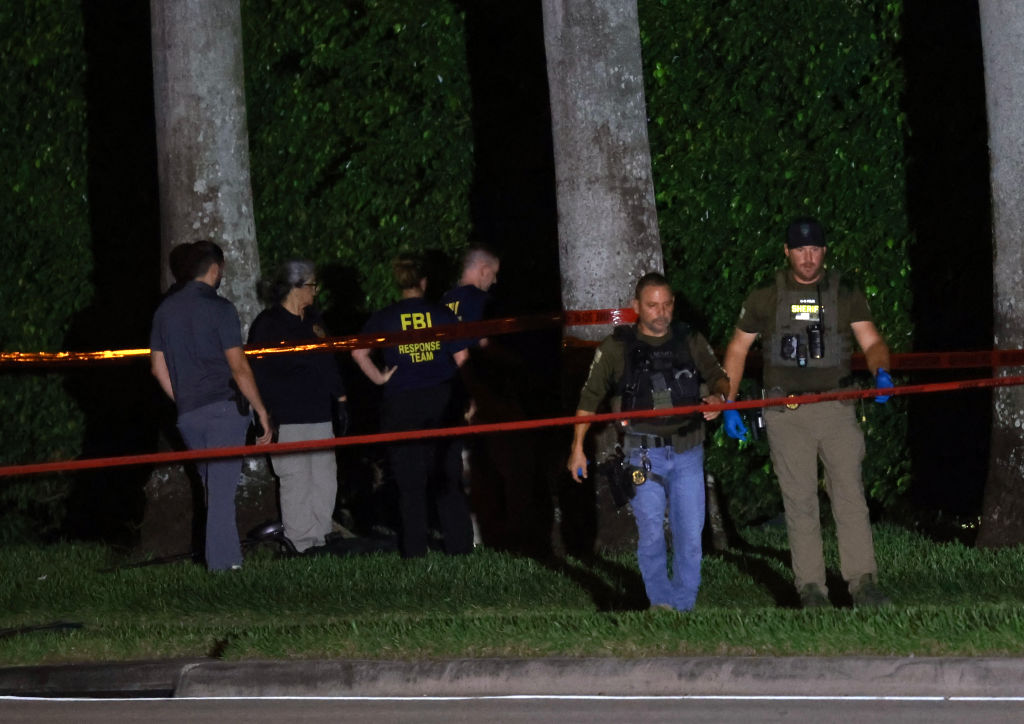
The Secret Service foiled an apparent assassination attempt targeting former President Donald Trump on Sunday afternoon at Trump International Golf Club in West Palm Beach, Florida. The suspect is in custody and Trump was unharmed, but the incident marks the second time in two months that a gunman has come within shooting distance of the former president, raising serious questions about the Secret Service’s capacity and the heightened risks of political violence.
Trump was in the middle of a round of golf at his club around 1:30 p.m. ET when at least one member of his Secret Service detail a hole ahead of Trump’s group spotted a man with a rifle near the edge of the property. According to local law enforcement, an agent saw the barrel of the rifle poking through a chain-link fence in the bushes along the property line. The Secret Service immediately fired at the individual, prompting the suspect to flee the scene in a vehicle. Local law enforcement subsequently tracked down the man and detained him. The Secret Service said Sunday afternoon the agency had yet to determine whether the suspect had fired any shots.
A spokesman for Trump’s campaign quickly put out a statement making clear the president was “safe following gunshots in his vicinity,” and a subsequent statement was released in a fundraising email: “I am safe and well, and no one was hurt. But, there are people in this world who will do whatever it takes to stop us.” In a post on his Truth Social account last night, Trump thanked the Secret Service and local law enforcement for their “incredible job done.”
President Joe Biden and Vice President Kamala Harris both condemned the attack and expressed gratitude that Trump was unharmed. “I am glad he is safe,” Harris tweeted. “Violence has no place in America.” Biden said that he has directed his team “to continue to ensure the Secret Service has every resource, capability, and protective measure necessary to ensure the former president’s continued safety.”
Authorities have yet to publicly identify the suspect, but unnamed law enforcement officials have zeroed in on a man in his late 50s. Details are still emerging on his background and possible motive. He lived in North Carolina for some of his life and apparently owned a shed-building company in Hawaii. He was interviewed by the New York Times and Semafor in 2023 about his faltering attempts to support Ukraine’s war effort and recruit volunteers to fight.
The Secret Service faced a mountain of scrutiny after the assassination attempt in Butler County, Pennsylvania, in July, ultimately leading to the director of the agency resigning from her post. Sunday’s attempt will no doubt compound that scrutiny. Palm Beach County Sheriff Ric Bradshaw said at a press conference on Sunday afternoon that the suspect got “between 30o and 500 yards” away from Trump, adding that “with a rifle and a scope like that, that’s not a long distance.”
Additional information will make clear just how close the suspect came to having a potential shot at the former president. But it seems that the good eyes of a Secret Service agent may have made the difference. “The golf course is surrounded by shrubbery,” Bradshaw explained. “When somebody gets into the shrubbery, they’re pretty much out of sight.”
“[The agent] did a fantastic job,” he added.
China Escalates Clashes with the Philippines
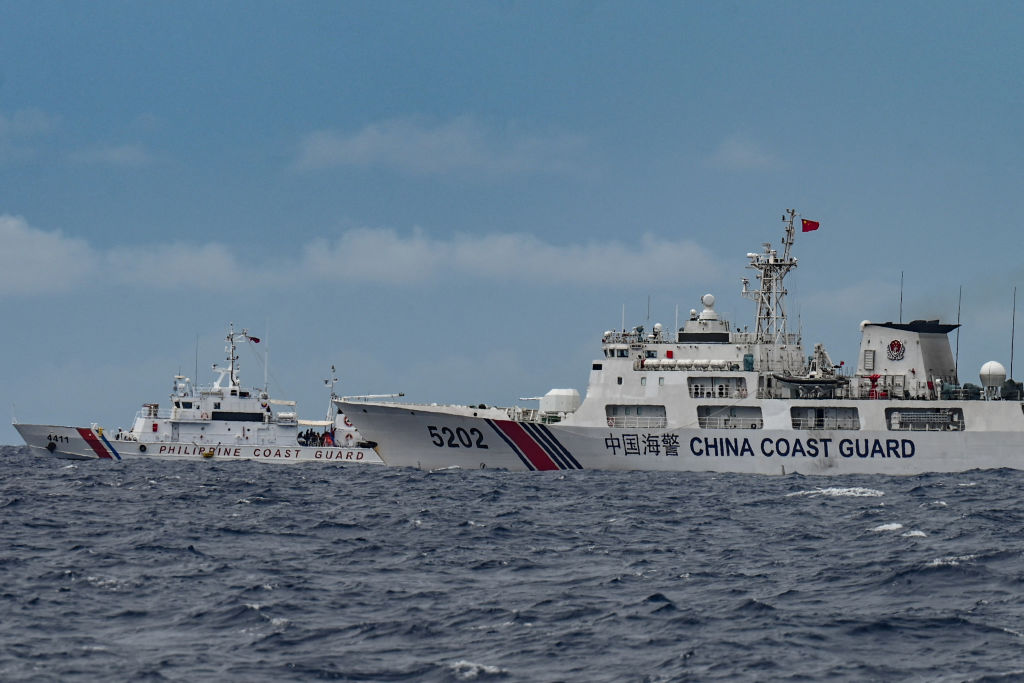
On August 31, near the Sabina Shoal in the South China Sea, a Chinese coast guard cutter was cruising dangerously close to a Philippines coast guard vessel, the BRP Teresa Magbanua, before it suddenly rammed the Filipino ship. The collision is just the latest in months of heightened aggression by the Chinese coast guard and merchant marine vessels toward Filipino ships. Vessels have been rammed, blasted with water cannons, and even boarded by parties armed with axes and spears.
The incidents triggered a round of emergency diplomatic meetings in Beijing last week. But observers don’t see a lasting end to the clashes on the horizon any time soon. The confrontations come as China has steadily escalated its actions targeting the Philippines over territorial claims in the South China Sea, risking a potential conflict that could draw in the United States.
The last few years have been marked by continual Chinese “grey zone” activity—actions that intentionally fall just short of acts of war—in the South China Sea. Last winter, more than a hundred vessels from Chinese maritime militias and the Chinese coast guard swarmed Whitsun Reef in the Spratly Islands, a disputed area that lies within the exclusive economic zone of the Philippines.
In June, the Chinese coast guard intercepted Philippine naval vessels near the BRP Sierra Madre, an old warship intentionally scuttled near the Second Thomas Shoal to reinforce the Philippines’ claim to the area. The Chinese sailors confiscated equipment and punctured Philippine rubber dinghies using knives and pickaxes. A Filipino sailor lost a thumb in the chaos, according to Filipino officials. “They are like pirates with the actions they carried out,” Gen. Romeo Brawner, the chief of staff of the Philippine armed forces, said about the incident.
With the Teresa Magbanua’s voyage to Sabina Shoal, where it had no permanent presence until last spring, the Philippines has signaled its willingness directly to China’s aggression, much to the chagrin of Chinese officials. In meetings in Beijing on Wednesday, China demanded that the Filipino vessel withdraw from the shoal immediately and declared that it would “firmly uphold its sovereignty,” according to a statement from the Chinese foreign ministry.
In a statement on Thursday, the Filipino foreign ministry reaffirmed Manila’s position, maintaining that the ship was sent to Sabina Shoal because of signs that China was planning construction activity, but “agreed to continue discussions on areas of cooperation.” Both sides characterized the talks as “frank and honest”— a phrase that could be taken a few different ways.
In recent years, the government of the Philippines has rethought its approach to China. While former Filipino President Rodrigo Duterte pursued a strategy of rapprochement with China, often at the expense of U.S.-Philippines relations, his successor President Bongbong Marcos has embraced revitalized diplomatic and military cooperation with Washington since taking office in 2022.
More recently, the Philippines has refused to toe the line when China attempts to violate its sovereignty, adopting a strategy of “assertive transparency: aggressively confronting and tracking Chinese forces operating in the South China Sea.” In practical terms, this involves documenting Chinese flotillas and construction activity, along with stepping up the Filipino coast guard and naval presence in contested areas. The Philippines aims to raise international awareness and, hopefully, galvanize diplomatic pressure. But the strategy has resulted in more confrontations, such as the clashes involving the Teresa Magbanua, which reportedly left the area of the Sabina Shoal on Friday.
The roots of China’s persistent “grey zone” aggression lie partly in sloppy cartography. A map of Chinese territorial claims drawn up more than 75 years ago by Chiang Kai-Shek’s Nationalist government included an elongated U-shape drawn in the ocean, stretching from southern China to the coasts of the Philippines, Malaysia, and Vietnam known as the “nine-dash line.”
The line claimed islands throughout the South China Sea, far from China’s coastline, on the grounds that China had discovered them first—a more than dubious maritime claim. All coastal countries possess “exclusive economic zones” extending up to 200 nautical miles from their land borders, according to the U.N. Law of the Sea, in which the state has sovereign economic rights below the surface of the sea but the surface remains international waters. States have greater sovereign rights to their “territorial sea,” which extends up to 12 nautical miles from their land borders. A 2016 U.N. arbitral tribunal found that China’s expansive claims were unlawful. The map also relied on some fundamental misunderstandings, based on British maritime maps. The nine-dash line’s southern tip lies on top of the James Shoal, an “island” nearly a hundred feet underwater, for example.
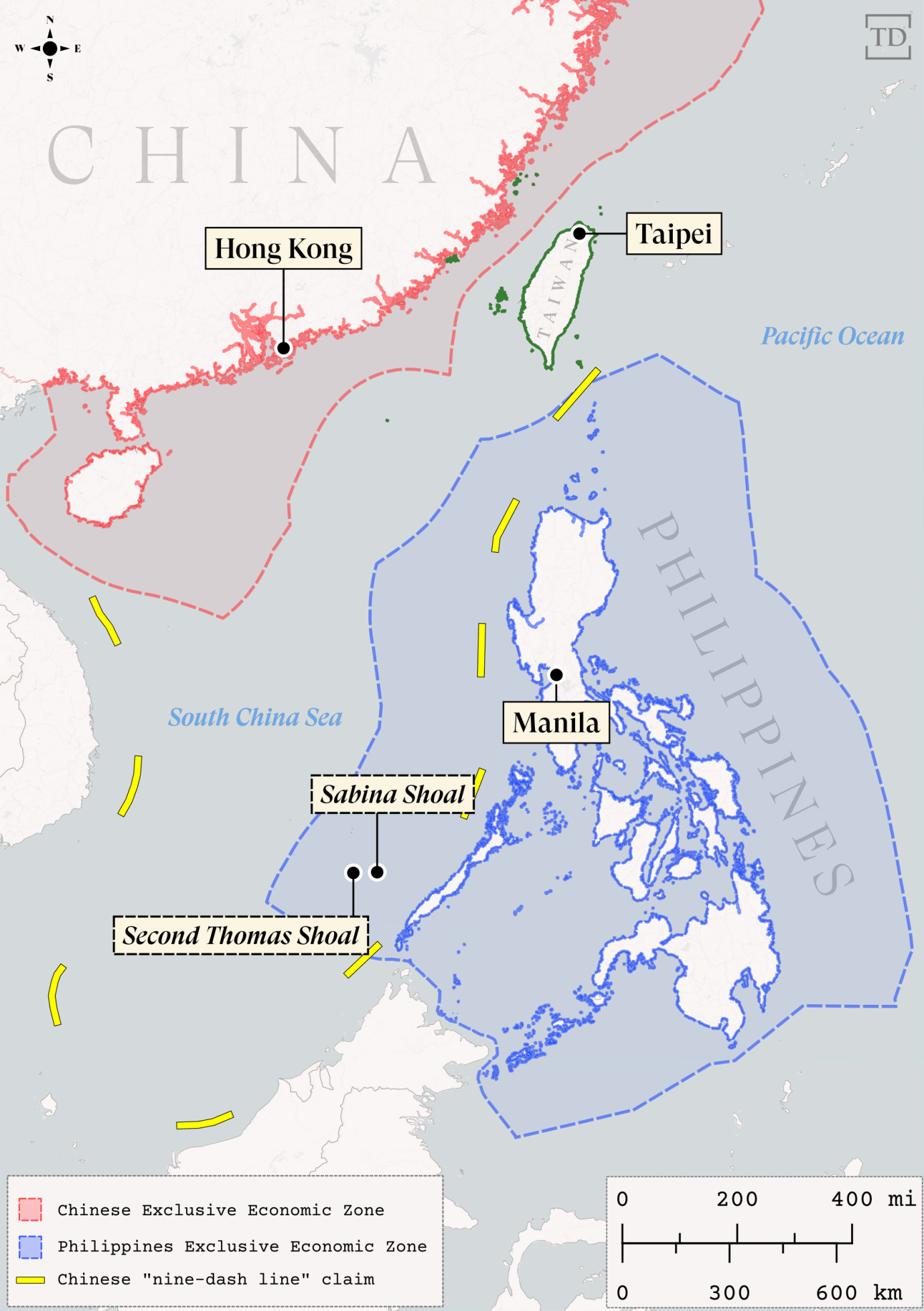
But regardless of international maritime law or cartographic errors, the Chinese Communist Party (CCP) has embraced these maximalist claims, and every Chinese child grew up with maps that proclaimed Chinese sovereignty over nearly all of the South China Sea. “That just became part of China’s national mythology,” Ray Powell, a fellow at Stanford’s Gordian Knot Center for National Security Innovation, told TMD.
Powell also noted that maintaining control of surrounding waters has special significance for China, which still carries deep scars from its domination by seaborne European powers and Japan during its “century of humiliation” from 1839-1949.
The Chinese government has carried out a decades-long campaign to make its claims in the South China Sea an on-the-ground reality. The CCP has sought to create or expand islands by piling sand on reefs or atolls, adding more than 3,200 acres of land to seven outposts it occupies in the Spratly Islands, according to the Defense Department. It has also constructed dozens of aircraft hangers and naval ports in contested areas. And perhaps most dangerously, it has deployed naval militias, or “little blue men,” to harass merchants and fishermen of other nations.
Some countries in the region have responded passively to China’s bullying. Malaysia has largely tolerated Chinese ships in its EEZ, although it has engaged in fossil-fuel exploration against China’s wishes. Vietnam, with a larger navy and a longer history of pushing back against Chinese encroachment, has actually undertaken its own extensive island-building operations in the Spratly Islands, disputed territory claimed by the Philippines, China, Vietnam, and Malaysia, and partially occupied by each country. (Brunei maintains a partial claim but does not occupy any territory.)
Some analysts say that the Philippines’ strategy of assertive transparency has run aground upon the rocks of Chinese resolve. Writing for Nikkei Asia in July, Derek Grossman, a senior defense analyst at the RAND Corporation, argued that unlike in years past, China under President Xi Jinping is “content flouting international law and norms of behavior if doing so suits Beijing’s interests.” Shame is ineffective if it’s used to confront a country that “has already embraced the bad guy role,” Grossman wrote.
But Powell told TMD that there’s more to the Philippines’ strategy than just “naming and shaming” China. He argued that the campaign was “about building national resilience, which you need to have in a democracy,” especially when asking the public to support increasing cooperation with the U.S. or raising the budgets of the Filipino coast guard and navy.
If clashes between China and the Philippines turn “hot,” the U.S. may find it difficult to stay out. The U.S. and the Philippines have had a mutual defense treaty since 1951, committing America to respond to an armed attack against the Philippines. Additionally, in 2023, the two countries modernized the agreement with the Bilateral Defense Guidelines, pledging that an “armed attack in the Pacific, including anywhere in the South China Sea, on either of their public vessels, aircraft, or armed forces – which includes their coast guards–would invoke mutual defense commitments.” The U.S. also provided $500 million of military aid to the Philippines to help the country upgrade its maritime assets in July.
It’s unclear exactly when and how the Philippines would invoke U.S. support. Keeping abreast of whether ramming, brandishing axes, or using water cannons constitutes “armed attack” is a question for sea lawyers. But a hypothetical, albeit very possible scenario, in which a Filipino sailor is killed in the confrontations could threaten to escalate the situation further.
At the Shangri-La defense summit this spring, Marcos declared that any action of China that resulted in the death of a Filipino citizen would “almost certainly” be a “red line,” and “very, very close to what we define as an act of war.” On Sunday, Philippine Defense Secretary Gilberto Teodoro told “60 Minutes” that if China forcibly took the Sierra Madre then it would constitute a “clear act of war” and that his country “would expect” American intervention. But the occurrence of an act of war doesn’t necessarily mean that the countries involved will go to war, Powell noted.
China will continue to push, then, and the Philippines will try to use a combination of diplomatic and military tools to deter Beijing’s aggression. The stakes are not simply the Thomas and Sabina Shoals, but the strategic balance of the South Pacific. Powell said that “China believes that it can ultimately, mostly through coercion,” convince countries that their only option is to make a “deal with this much larger, much more capable, power.”
A New Dispatch Offering: The Monday Essay
If you read The Dispatch regularly, you know that one of the main things we aspire to do—going all the way back to our founding—is inject more sober-minded analysis into a media environment rife with hot takes. We believe that’s especially needed in the middle of an election season.
To that end, we will be bringing you a fresh perspective from a contributing writer every Monday about long-term, big-picture questions concerning politics, policy, and culture. What’s missing from our debates about crime trends? How does an economist approach the falling birth rate? Should a civilian population’s beliefs enter into a military planner’s ethical calculus?
And to kick things off today: Jay Cost on how we started thinking of the three branches of the federal government as “coequal.”
It is a truism in modern politics that ours is a system of “coequal branches.” Politicians of both parties solemnly invoke this principle all the time. We hear it even as early as civics class in elementary school. Former Sen. Ben Sasse of Nebraska encapsulated this tendency in a 2020 post, in which he wrote, “As all of us learned in School House Rock, the judiciary is not only a separate branch of government from the Executive and Legislative branches, but also a co-equal one.”
There is just one problem—it’s not true.
Worth Your Time
- Commentary’s Abe Greenwald was traveling to Kyiv when he heard the devastating news that a Russian missile had struck the Ukrainian city’s Okhmatdyt Children’s Hospital. “Okhmatdyt was still burning when I got there, and volunteers were already streaming through the wreckage with loads of bottled water in both arms, as if they were professional aid workers. The missile had leveled one wing of the hospital and torn the façades off every surrounding building,” he wrote. “As I look back on a morning filled with indelible images, the most persistent one is this: a small group of Ukrainians wheeling a miniature—that is, a child-sized—hyperbaric chamber outdoors. And while I couldn’t see whether a sick child lay inside, I took note of one woman who was tending to the little capsule quite maternally … A question naturally comes to one’s mind at such moments: Why would Russia deliberately target a children’s hospital with a cruise missile?” he asked. “There are, in fact, several correct answers. One is that Vladimir Putin is depraved. … But there’s another, more important answer, and it’s one that the United States and its allies need to appreciate: Vladimir Putin’s Russia is better at being monstrous than victorious.”
Presented Without Comment
NBC News: ‘It Just Exploded’: Springfield Woman Claims She Never Meant To Spark False Rumors About Haitians
“It just exploded into something I didn’t mean to happen,” Erika Lee, a Springfield resident, told NBC News on Friday.
…
“I feel for the Haitian community,” she said. “If I was in the Haitians’ position, I’d be terrified, too, worried that somebody’s going to come after me because they think I’m hurting something that they love and that, again, that’s not what I was trying to do.”
Also Presented Without Comment
Former President Donald Trump, on Truth Social:
“I HATE TAYLOR SWIFT!”
Also Also Presented Without Comment
Washington Post: Pope Francis Says Harris And Trump Are ‘Against Life’
“Both are against life: the one that throws out migrants and the one that kills children,” said Francis, who did not call out either candidate by name, according to a transcript published by Vatican News.
…
Asked what voters should do at the polls, Francis said, “One should vote, and choose the lesser evil.” He did not weigh in on which candidate was the lesser evil, saying, “Who is the lesser evil, the woman or man? I don’t know.”
In the Zeitgeist
Team USA reclaimed the Solheim Cup from Europe over the weekend. The competitors hit their fair share of spectacular shots, but perhaps best of all was Alison Lee’s eagle from 86 yards out. Our favorite part was her caddies’ reactions.
Toeing the Company Line
- We’re excited to announce we’ve partnered with several student organizations to provide young people access to all The Dispatch has to offer. At a time when about a third of Americans under 30 say they get their news from TikTok, you can help us in our goal to equip more young people with the tools they need to stay informed, think critically, and engage in meaningful discussions by sponsoring a student membership today. And if there’s a student group you think would be a good fit for the program, please email members@thedispatch.com.
- In the newsletters: The Dispatch Politics team explained the Harris campaign’s flip-flop on fracking, Nick highlighted (🔒) three excuses used by right-wing influencers to justify Trump’s recent behavior, Jonah explored the contagion of craziness infecting partisans of all stripes, Chris offered (🔒) a snapshot of where the race for the White House stands post-debate, and Karen Swallow Prior penned a Dispatch Faith essay about how Christians can help public schools become a positive force in their communities.
- On the podcasts: Jonah ruminated on the fallout from the debate and the misplaced power worship of authoritarianism, and on today’s episode of The Dispatch Podcast, Jamie is joined by Olivia Nuzzi to discuss her recent trip to Mar-a-Lago and piece on Donald Trump.
- On the site over the weekend: Daniel N. Gullotta reviewed historian Lindsay M. Chervinsky’s new biography of former President John Adams, and Flagg Taylor revisited Soviet dissident Aleksandr Solzhenitsyn’s The Gulag Archipelago on the 50th anniversary of its publication in English.
- On the site today: Jay Cost kicks off our Monday Essay series with a look at the evolution of the three “coequal” branches of government.
Let Us Know
What are some topics you’d like to read a Monday Essay about? Who are some authors you’d like to hear from?



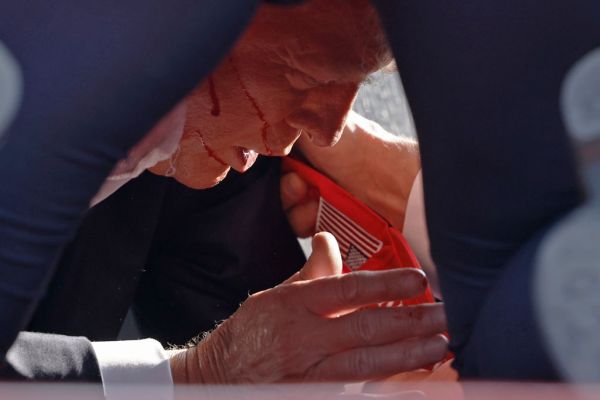
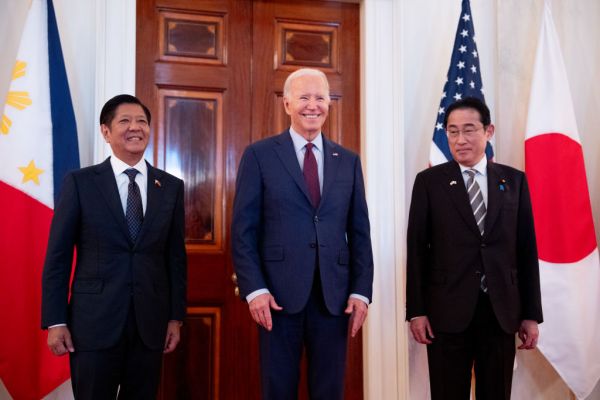
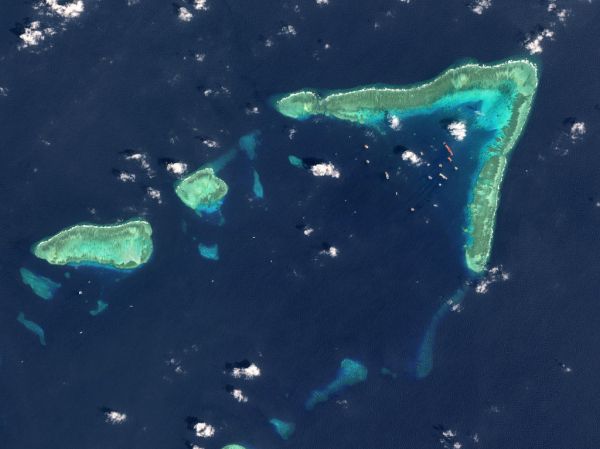




Please note that we at The Dispatch hold ourselves, our work, and our commenters to a higher standard than other places on the internet. We welcome comments that foster genuine debate or discussion—including comments critical of us or our work—but responses that include ad hominem attacks on fellow Dispatch members or are intended to stoke fear and anger may be moderated.
You are currently using a limited time guest pass and do not have access to commenting. Consider subscribing to join the conversation.
With your membership, you only have the ability to comment on The Morning Dispatch articles. Consider upgrading to join the conversation everywhere.